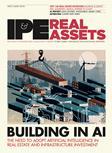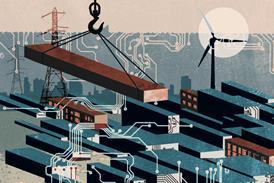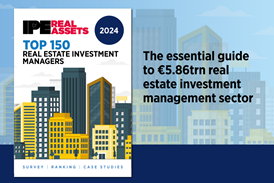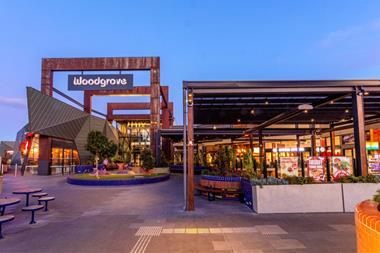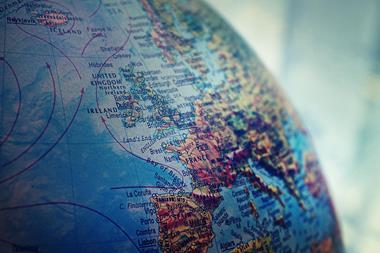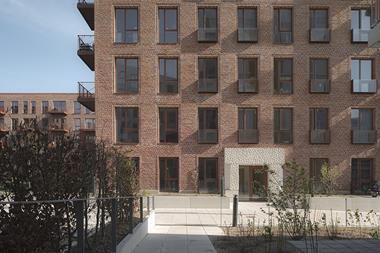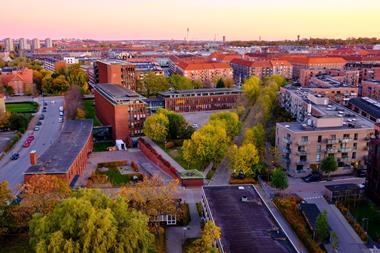Attendees at this yearãs Urban Land Institute (ULI) Europe Conference in London received a stark yet encouraging outlook from Bronwen Maddox of Chatham House as she declared that a return to ãnormalã was not on the horizon.
In her keynote on geopolitics and global markets, the director and CEO of the international affairs think tank talked about the deep ãroots of the uncertaintyã that demanded a strategic shift towards identifying worst-case scenarios while simultaneously seeking out opportunities.
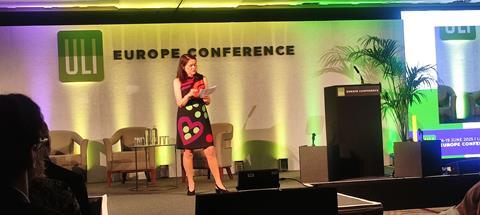
Despite the current global instability, Maddox highlighted a compelling ãconversation about leapfroggingã in many nations, particularly through technological advancements like artificial intelligence (AI) and digital technology, which shows how ãpeople are finding solutionsã and quickly adjusting to this challenging environment.
ãIt isnãt going to be normal again. I think that time has gone,ã she said, adding that the forces driving todayãs instability have been ãlong time runningã and ãgo much, much deeperã than any single political figure or crisis.
According to Maddox, this change is reflected in the ãparalysingã uncertainty that now complicates decision-making in both professional and personal lives, making it ãremarkable how difficult that has becomeã.
The growing rivalry between the US and China is a key reason for this uncertainty, Maddox said. ãThe US has never had a rival quite like this,ã she said and highlights Chinaãs unique position as an ãideological rivalã, an economic powerhouse, technological competitor and a military contender.
She said that, under president Xi Jinping, China is overtly saying, ãlook, we have a completely different way of organising relations between people, between people and their government, and we can balance it better ã and weãre quietly going to try and make sure the rules of the world, governance of the world tilt our way and suit us, not suit the West.ã
Beyond the actions of major powers, Maddox also touched on the downsides of globalisation. She agreed it had ãlifted millions of people out of povertyã and was ãa huge engine for reducing inequality between countriesã. However, its major flaw was that ãthe benefits were not within countries distributed very evenly, which is making countries very difficult to runã. This imbalance within nations, fuels ãmuch of the engine of the populismã seen globally.
However, Maddox urged attendees ãnot to lose sight of the creativityã transforming many areas, especially AI. She spoke of excited medical professionals predicting that AI will ãdo so much to improve our lives, to reduce the risk and the fear that everyone feels about health and their own personal livesã. This innovation highlights that ãpeople are smart and finding ways to fix thatã.
She said ãcompanies and commercial life have all the advantages over governmentsã, moving faster and being less constrained by voter sentiment. ãIn all this uncertainty, it is not the worst place to be running a commercial company,ã she concluded.
Global shifts: trade tensions and new alliances
The US administrationãs ãstaggering portrait of activityã of unpredictable and ãenormously disruptiveã tariff policies potentially undermines the countryãs competitiveness and scientific innovation and could see it ãsurrendering so many of its influences around the worldã, potentially leaving a vacuum for China, Maddox said.
Europe, meanwhile is experiencing ãa new sense of urgencyã on security and competitiveness, grappling with its slow pace of decision-making, she said. However, new alliances are forming and the UK, post-Brexit, is finding a ãslightly differentã path, fostering ãmiddle power alliancesã with countries like Nigeria, Korea and New Zealand.
ãIt isnãt going to be normal again,ã Maddox said. ãWe have to look for where the worst cases are, and then try and minimise and also look for opportunitiesã.
To read the latest 91Ǩû§åÖüÔ magazine click here.

